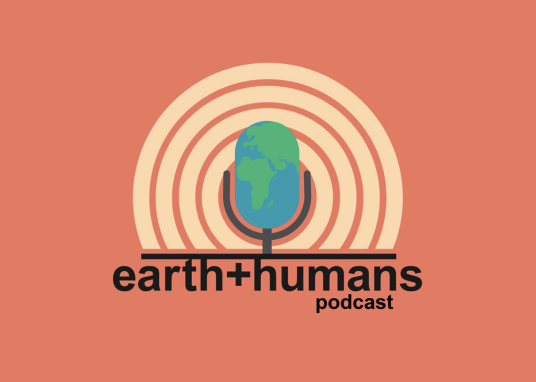
Earth + Humans

The list of major problems the world faces seems to grow every day. From climate change to wealth inequality and pollution to racism, it can be difficult to get a grip on the issues, let alone the solutions.
But UC Santa Barbara’s Trisalyn Nelson sees a common thread to many of these challenges: geography. In her podcast, “Earth + Humans,” Nelson shares the innovative ways in which geography can help address these daunting problems. The monthly show is available on Spotify, Apple Podcasts, Amazon Music, Stitcher and iHeartRadio.
“‘Earth + Humans’ is a podcast about geography solutions to issues around climate change and social injustice,” said Nelson, the Jack and Laura Dangermond Chair of Geography. “We interview a variety of researchers and professionals that are working towards solving some of the critical issues that happen when people and the planet collide.”
Nelson’s expertise lies in geographic information science (also known as GIS), in which researchers create, map and analyze different types of data. If you’ve seen a color-coded map, such as of pandemic information, it was likely made with GIS software. The approach has become an incredibly powerful tool for researchers, policymakers, engineers and really anyone who deals with data that has a spatial component.
For instance, in her just-released February 2022 episode, Nelson speaks with Clinton Johnson, a GIS professional who runs the nonprofit organization GIS NorthStar, a community group working to increase the representation, belonging and inclusion of people of African descent in GIS.
“In this episode, we talk about some of the racial justice applications of GIS,” Nelson said. “For instance, how can maps and GIS help us make better decisions with equity in mind?” She and Johnson also discuss how maps have historically been used to reinforce racism with policies like redlining.
But tools are only as good or bad as the intentions of the people using them, and Nelson sees geographic information science as a force to help overcome racism, if applied with inclusion in mind. “GIS is basically map data science,” she said. “As a result, who has access to those tools is going to have a really big impact on who has power and who is able to inform decisions.”
“Earth + Humans” was initially born out of Nelson’s desire to share the important work that geographers do. She often found that people she interacted with knew very little about the field. Even her own parents occasionally referred to her as a geologist.
“There’s a lot of misconception about what it is a geographer does,” Nelson said. “So ‘Earth + Humans’ is an attempt to show the broad range of really important solutions that geographers bring to some of the most pressing issues.” Because geography is such a highly interdisciplinary field, many geographers are well positioned to help address urgent global problems, she added.
Nelson also sees a public-service aspect to the show. “A lot of research is funded by tax-payers,” she said. “And, I think it’s really important that they understand how it’s being utilized and what the benefits are.”
Starting in the 2022 fall quarter the podcast will also serve as the basis of an introductory geography course at UC Santa Barbara — GEOG 1, Earth + Humans — which will explore how the field is helping us address environmental and societal challenges.
Listeners can message Nelson or executive producer Lizzy Schattle, also with the geography department, with ideas for topics or guest experts they’d like to hear from. They can also follow the show on Twitter at @EarthPlusHumans. “Geographers are poised to help solve some of the biggest challenges the world is facing,” Nelson said, “and raising awareness of this work will help accelerate solutions.”



